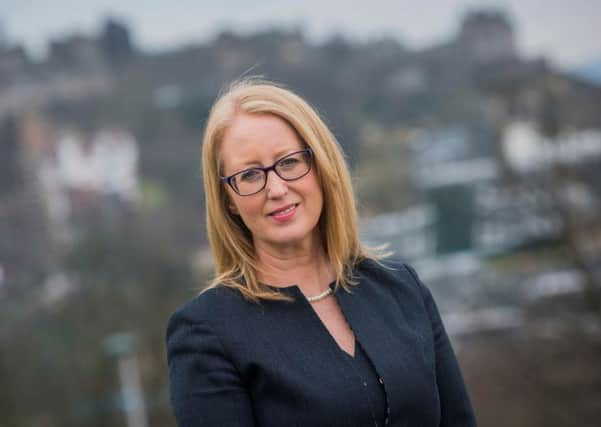Monday interview: EY Scotland's Sue Dawe
This article contains affiliate links. We may earn a small commission on items purchased through this article, but that does not affect our editorial judgement.


Less than a year into the post and EY’s head of financial services in Scotland will be upping sticks, along with hundreds of colleagues, as the professional services giant relocates its capital operation to the heart of the city’s business district.
EY – still better known to many in its unabbreviated form, Ernst & Young – has agreed a 15-year lease for 32,000 square feet on the third floor of the Atria One building on Morrison Street. The much-mooted expansion of the Edinburgh office will see the firm move from its current George Street base, where some 450 staff work across three floors of traditional office space.
Advertisement
Hide AdAdvertisement
Hide AdThe state-of-the-art Atria building – already home to the likes of the Green Investment Bank and the Law Society of Scotland – will provide space for up to 620 workers. It forms part of EY’s global “EY@Work” transformation, centred on modern office space supported by the latest technology, design and environmental standards, areas that Dawe says are ticked by Atria.
“The format of the office will be very similar to those right across the world,” she says. “We are excited about moving into a very hi-tech office and we will be right in the heart of things in Edinburgh’s financial district.”
• READ MORE: Accounting giant EY to ramp up technology investment
Dawe, who was appointed to her current position last July and is also the firm’s Edinburgh office managing partner, says the move goes hand-in-hand with the expansion of the financial services operation, described as “significant” and boosted by taking on audit work for RBS.
“I am absolutely delighted to be in this position, particularly at a time when the financial services industry is actually pretty buoyant in Scotland and we can see that growth in our practice as well,” observes Dawe, who has been a partner with the big-four accountancy firm since 2009 and has more than 25 years’ experience within the financial services sector.
“The industry has its challenges and we are now having to deal with Brexit and indyref2 but I think, given the strength of the sector here we can deal with that. From our point of view, we are very positive about the outlook in Scotland and I feel our office move illustrates that confidence in the industry and the economy.”
North of the Border, EY has a headcount slightly above the 1,000 mark, operating out of offices in Aberdeen, Edinburgh, Glasgow and Inverness, with 34 partners dedicated to the Scottish market.
Advertisement
Hide AdAdvertisement
Hide AdResults for the UK-wide business, released in October, revealed solid full-year growth despite a pre-Brexit vote blip. UK fee income grew by 7 per cent to £2.15 billion for the year to 1 July, compared with the previous 12 months. It took the firm’s compound annual growth rate over the last five years to 8 per cent, adding almost £700 million to its revenues.
Distributable profits before tax rose by 3 per cent from £437m to £452m. During the period, the firm recruited more than 4,000 people across its UK operations, including in excess of 1,500 student places. There were 62 new equity partners who joined the business, compared with the record 95 admitted a year earlier.
Dawe doesn’t shy away from the challenges facing the industry, including rapid technological change and the rise of artificial intelligence (AI), which threatens millions of jobs, blue and white-collar alike. EY said last year that it was looking to plough “significant investment” into analytics, AI and robotics to keep it ahead of the game.
“One of the main things the industry has to face is the disruption caused by technology,” says Dawe. “We need to look at what we think is going to happen over the next five years and address that.
“It’s one of the things that Scottish Financial Enterprise has been looking at along with the industry. There is a lot of collaboration going on there.”
She says fintech provides Scotland with a “great opportunity” to lead from the front, pointing to success stories such as Money Dashboard and Payfont.
“I think the launch of Entrepreneurial Spark at Gogarburn is fantastic for Scotland and it has the backing of industry. Given what Scotland can offer with its universities plus the technology background that we have, we are in the best place to become a world renowned financial technology centre.”
30-SECOND CV
Job: EY’s head of financial services in Scotland
Born: 1968, Stirling
Education: Accountancy and finance BA, Heriot-Watt University
Advertisement
Hide AdAdvertisement
Hide AdFirst job: Summer intern at Ernst & Whinney (later became EY)
What car do you drive? Mini Cooper S Works
Favourite mode of transport: Plane
Music: 1980s pop
Reading material: The Economist and Hello!
Can’t live without: Quality time with close family
What makes you angry? Use of bad grammar
Favourite place: Carlisle Bay, Antigua
Best thing about your job? Working with great people